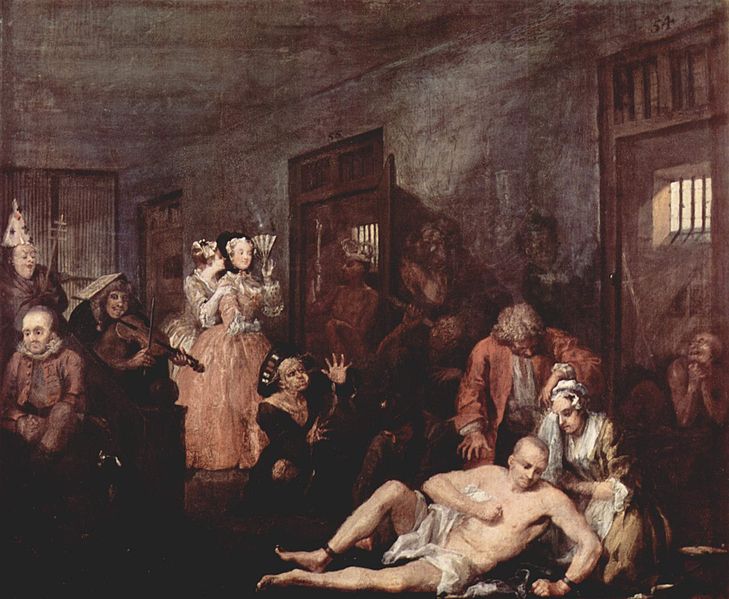 |
| The original well |
Those of you who possess an iPhone will know about Autocorrect, a system that automatically replaces a strange word with a more familiar one. This plays havoc with my prose as
bathycolpian is corrected to
Bathe impish and
malbolge comes out as
Map Olga. There's a whole website called
Damn You, Autocorrect that is devoted to such amusing alterations. However, it doesn't always get it wrong.
On Saturday I was in
Clerkenwell, which is a bit of London
mentioned by T.S. Eliot:
Driven on the wind that sweeps the gloomy hills of London,
Hampstead and Clerkenwell, Campden and Putney,
Highgate, Primrose and Ludgate.
And I tried to send a text message saying where I was. But Autocorrect was having none of it. Clerkenwell was, according to Autocorrect, Clerks Well. And the odd thing is that that is absolutely right.
Thomas á Beckett had a subdeacon called William Fitzstephen who wrote a brief
description of the City of London in 1174 praising "the respectability of its citizens, and the propriety of their wives". He also describes how:
There are also in the northern suburbs of London springs of high quality, with water that is sweet, wholesome, clear, and "whose runnels ripple amid pebbles bright". Among which Holywell, Clerkenwell and St. Clement's Well have a particular reputation; they receive throngs of visitors and are especially frequented by students and young men of the city, who head out on summer evenings to take the country air.
The description was written in Latin, but the old English for
students was
clerken, from which we get the modern English
clerk (and
clerical). So the well where students hung around on summer evenings was the
clerks' well, or
Clerkenwell.
But Autocorrect knew that already.

The well, incidentally is still there, now contained within an office block called Well Court (pictured). And while we're on the subject of clerks, here's an interesting little detail about a poem by Auden.
Auden once wrote a poem called
The Fall of Rome about the end of a civilisation that is, nominally, ancient Rome. However, there are all sorts of modern details (like trains and musclebound marines) that suggest he was thinking about a more modern civilisation. But which?
Auden was an Englishman who had emigrated to America so he knew that in Britain we pronounce
clerk to rhyme with
ark, but in America
clerk rhymes with
Turk. So the fifth stanza of this poem shows exactly which civilisation he's thinking about.
The piers are pummelled by the waves;
In a lonely field the rain
Lashes an abandoned train;
Outlaws fill the mountain caves.
Fantastic grow the evening gowns;
Agents of the Fisc pursue
Absconding tax-defaulters through
The sewers of provincial towns.
Private rites of magic send
The temple prostitutes to sleep;
All the literati keep
An imaginary friend.
Cerebrotonic Cato may
Extol the Ancient Disciplines,
But the muscle-bound Marines
Mutiny for food and pay.
Caesar's double-bed is warm
As an unimportant clerk
Writes I DO NOT LIKE MY WORK
On a pink official form.
Unendowed with wealth or pity,
Little birds with scarlet legs,
Sitting on their speckled eggs,
Eye each flu-infected city.
Altogether elsewhere, vast
Herds of reindeer move across
Miles and miles of golden moss,
Silently and very fast.
God, I love that last stanza. Incidentally,
cerebrotonic means:
Designating or characteristic of a type of personality which is introverted, intellectual, and emotionally restrained, classified by Sheldon as being associated with an ectomorphic.
Clerkenwell Gaol (or maybe Jail)


























